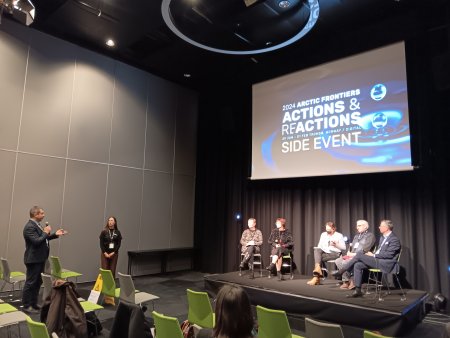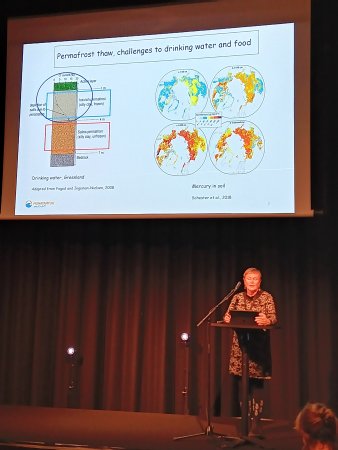
The Arctic Frontiers Conference in Tromsø (Norway) gathered European health researchers from member universities of the European University Alliance for Global Health (EUGLOH). They discussed how climate changes in the Arctic might cause future pandemics. All agreed that global health challenges should be addressed with a broad and holistic approach.


UiT The Arctic University of Norway hosted EUGLOH’s panel discussion on the first day of the Arctic Frontiers Conference, which was held from 29 January to 1 February 2024 in Tromsø. The moderator of the debate, titled: "Solutions for One Health issues in Europe and the Arctic", was UiT's rector and EUGLOH’s current chairperson of the Governing Board, Dag Rune Olsen. Panel participants and speakers were researchers from EUGLOH partner universities such as Paris-Saclay University, the University of Porto, and Ludwig-Maximilians-Universität München. The speakers discussed how the One Health concept can provide new perspectives on how to solve global health challenges. The concept involves an integrated, systematic and united approach to supporting better health for animals and humans as well as sustainable health at a local, national and global level.
In his introduction, Dag Rune Olsen emphasized that northern Norway faces its own challenges in building sustainable communities and healthcare systems. Two main challenges are a relatively small population and rather vulnerable ecosystems. “It is important that we do not decouple the importance of health for ecosystems with human health. It is interwoven. It is not detached from each other”, Olsen emphasized.
He acknowledged that it can be easy to lose sight of the complex health challenges we face on a global scale, while adding that “The broader university community across many borders of this globe possesses huge amounts of knowledge on how to tackle these problems. It is not necessarily knowledge, science or insight that we lack. But it is a challenge how to bring this knowledge together, to see how we can develop new strategies.”
During the panel discussion at the end of the event, Professor Dr. Katja Radon from LMU Munich raised the question of “How to train young people together and make them cross the silos that we are educated in”. She pointed out that young people from different fields, such as medicine and sociology, need to “sit in courses together so that they learn from each other and learn to respect each other. Only like that can there be a mix of methodology.” Her words essentially underline the importance of one of EUGLOH’s main ambitions – to offer opportunities for a transdisciplinary, transnational education to its students all across Europe.
